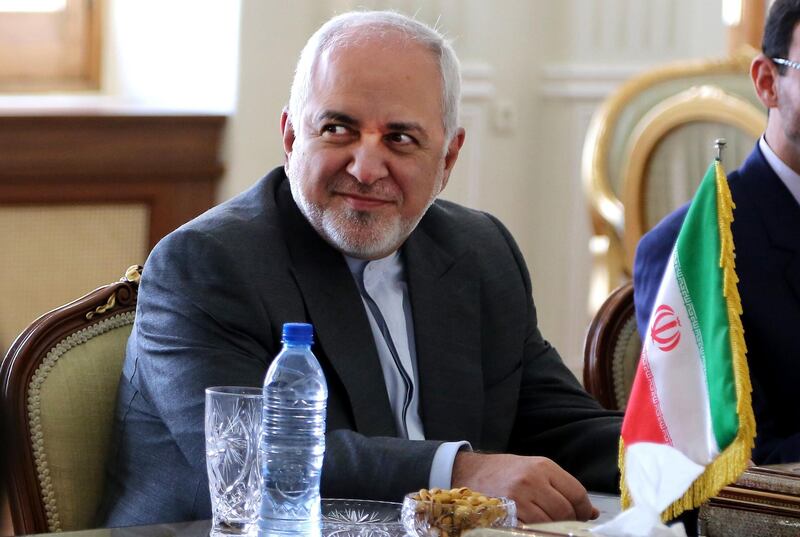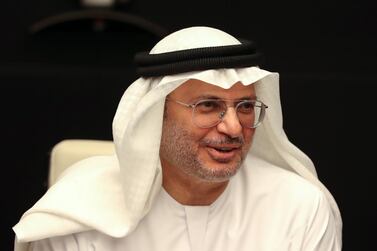Iran will leave its 2015 nuclear deal with world powers if Tehran's interests were not protected by the other parties, Foreign Minister Javad Zarif said on Monday.
"Iran will leave its 2015 nuclear deal with powers if necessary," Mr Zarif said live on state TV, calling on Europeans to accelerate their efforts to shield Iran's economy from US sanctions.
He said the recent US sanctions against him were a failure for diplomacy.
Mr Zarif said in Tehran on Monday that "imposing sanctions against a foreign minister means failure" for any efforts at negotiations.
It also means the side imposing the measures is "opposing talks".
The US administration last week announced sanctions on Mr Zarif, a month after President Donald Trump imposed similar sanctions on Iran's supreme leader, Ayatollah Ali Khamenei.
The move is regarded as part of Washington's campaign of what Mr Trump calls "maximum pressure" on Tehran.
But Mr Zarif dismissed as disingenuous US claims that it wants to engage in dialogue with Iran.
"They were the ones who left the table, sanctioned the foreign minister of Iran, sanctioned the highest authority of the Islamic republic. Who do they want to negotiate with?" he asked.
"The US only wants to impose its will on the Islamic republic. They should not expect us to negotiate as long as they engage in economic terrorism."
The US has increasingly sent military to the region as tension rose since Mr Trump's withdrawal last year from the deal.
Mr Zarif stressed that while there were no problems between the American and Iranian people, Washington's policy of threatening war and "talking about war as an option that remains on the table cannot stand".
A day earlier, Iran announced that its forces had seized a foreign ship in the Arabian Gulf it claimed was carrying smuggled fuel.
It was the Revolutionary Guard's third seizure of a vessel in recent weeks and the latest show of strength by the paramilitary force.
Iranian media reported that seven crew members were detained when the ship was seized last Wednesday with "smuggled fuel" from Iran.
But it provided no details on the vessel or the nationality of the crew.
The US has recently boosted its military presence and six oil tankers targeted in the Gulf of Oman in unclaimed acts of sabotage that the US blames on Iran.
In June, Iran shot down an American surveillance drone in the Strait of Hormuz. Mr Trump came close to retaliating, but called off an air strike at the last moment.
Washington has since claimed that a US warship downed an Iranian drone in the strait. Iran denies losing any aircraft in the area.
Maritime security in the region was further jolted in mid-July, when the Revolutionary Guard's naval forces confirmed they had seized an oil tanker, the Panamanian-flagged MT Riah, for purportedly smuggling fuel from Iranian smugglers to foreign customers.
In response to such incidents, the US has been seeking to form a coalition dubbed Operation Sentinel to guarantee freedom of navigation in the Gulf.
But it has been struggling to build such a coalition, with European countries apart from Britain reticent and believed to be concerned about being dragged into a possible conflict.
Britain confirmed on Monday that it would join the US-led maritime mission.
A government statement said the UK would be leading the operation and had offered to head one of the mission’s maritime task groups.







